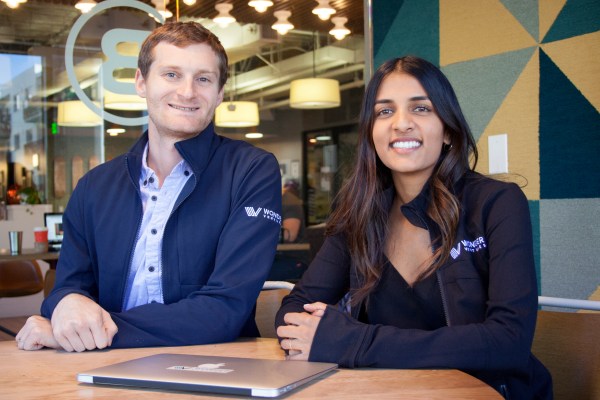Dustin Rosen thinks L.A. has a problem, aside from its famously car-choked highways. There aren’t enough investors willing to write small checks.
Why not? The way he sees it, most of the so-called micro venture funds have grown their funds to the size of traditional venture firms, and are making bigger bets as a result. Meanwhile, some of the angel investors that Venice-based Snap was expected to produce have not materialized, owing to the company’s disappointing performance on the public market.
It’s a pitch that has resonated with investors, seemingly. Today, Rosen, whose young firm is called Wonder Ventures, is taking the wraps off a $15 million seed fund, including from Cendana Capital, a fund of funds that has backed many of today’s early-stage firms as they’ve gotten off the round, including Forerunner Ventures, Uncork Capital and Lerer Hippeau Ventures.
Some traction with a much smaller proof-of-concept fund surely helped, too.
Among the 30 companies already in Wonder’s portfolio are Tala, an L.A.-based company that provides on-demand financing for the underbanked millions using a mobile-first platform (and has now raised more than $100 million altogether). Another promising regional bet: Clutter, a tech-enabled storage company that lets users store extra stuff without leaving their house and that has raised more than $90 million from investors, including Sequoia Capital, GV and Atomico. Wonder was also the first investor in AirMap, an airspace services platform for unmanned aircraft that has now raised more than $43 million from investors, including General Catalyst, M12 and Bullpen Capital.
When did Rosen first connect with these companies and what is he shopping for going forward? We chatted with him earlier this week to learn more.
TC: Tell us a bit more about your background and how you wound up being an investor in L.A.
DR: I lived here until I was five, then grew up in Princeton, New Jersey, went to Wharton, and worked on Wall Street, but hated it. So I wound up at the mailroom, working for William Morris [the talent agency].
TC: Do you mean the actual mailroom, or the Mail Room Fund [a short-lived joint venture fund established 12 years ago by William Morris, Accel, Venrock and AT&T]?
DR: I mean at first I was literally delivering mail, escorting Scarlett Johansson out of the office, doing coffee runs.
TC: Did you want to be a screenwriter? A talent agent?
DR: I wanted to make deals. In fact, when they announced that they were doing the Mail Room Fund, I was the only person who raised my hand. Now you’d have 100 applications, but a dozen years ago, no one in L.A. knew what VC was.
TC: I can’t remember now how that ended, the Mail Room Fund.
DR. It actually returned money to investors, but William Morris merged with Endeavor and they killed it.
TC: Sorry. So after that, you started a company?
DR: Yes, Pose, which was an early mobile shopping application. Mark Suster of Upfront Ventures led my seed round with a $500,000 check. I was really interested in the iPhone and the power of the App Store and Pose was sort of right between Pinterest and Instagram. I wish I’d chosen one path or the other. [Laughs.] [Editor’s note: Pose merged with another L.A-based company, Little Black Bag, in 2013.]
TC: So you decided to launch this proof-of-concept fund four years ago, with how much?
DR: With a couple million dollars. The idea was to fill the angel gap here in L.A., due to the region lacking some of the IPOs the Bay Area has had. It was also becoming clearer that local funds like Greycroft and Upfront and Crosscut and Mucker and Bonfire were all getting bigger [in terms of assets under management] and couldn’t write small checks anymore.
TC: Things have gone well, judging by some of your investments. What size check were you writing with that very small fund, and what size checks will you be writing now?
DR: I was writing checks starting in size from $50,000. That’s what I invested in Clutter before Sequoia came in to lead the Series A and B rounds for the company. With Wonder Ventures II, we’re writing checks of between $250,000 and $500,000 and leading rounds of up to $1 million.
TC: What’s the mandate, exactly?
DR: The mandate is stage and geography focused. Our investors think that L.A. is interesting and want earlier exposure, but they want exposure to a diversity of ideas and industries, not just fintech or enterprise or chip companies.
TC: What do you personally need to see to pull the trigger? Can it be an idea on a paper napkin or do you need more than that?
DR: Half the time, we’ll invest pre-product if we love a space and love a team and think they can execute. The other half of the time, we’re looking for “micro traction,” which can be thousands of dollars a month in revenue but enough accelerating growth that there could be something there.
TC: Who is a natural partner for a firm of Wonder’s size if there aren’t many of you in L.A.?
DR: One co-lead is Amplify.LA, an accelerator with which we work really well. We also work with a lot of angel investors. Say a startup is looking for $750,000. We can provide the $500,000 check and round up the rest from angels.
TC: From where? L.A.-based companies?
DR: People in the L.A. community who’ve come out of Dollar Shave Club or Tinder or Cornerstone OnDemand or SpaceX.
TC: Or Snap?
DR: I don’t see a lot of capital being redeployed into the ecosystem from Snap. I think a lot of talent came in late and the company [shares were] already marked up.
I am seeing a migration of people from the Bay Area to L.A. — people who are moving for the lifestyle. There’s a community of them, too.
Pictured above: Rosen and associate Abha Nath
